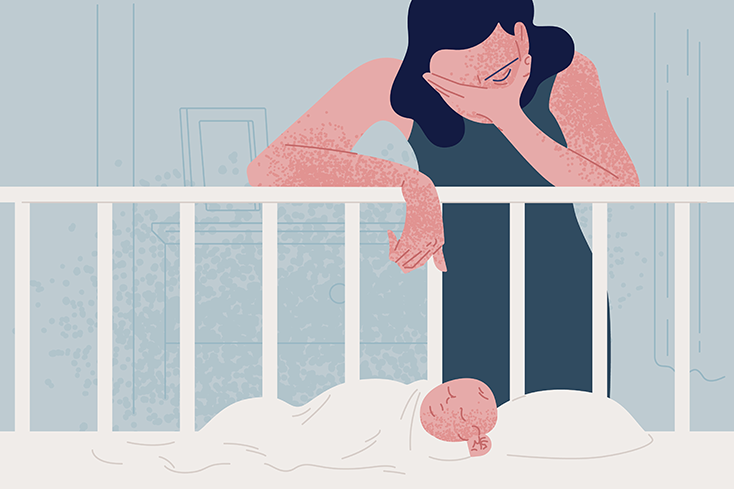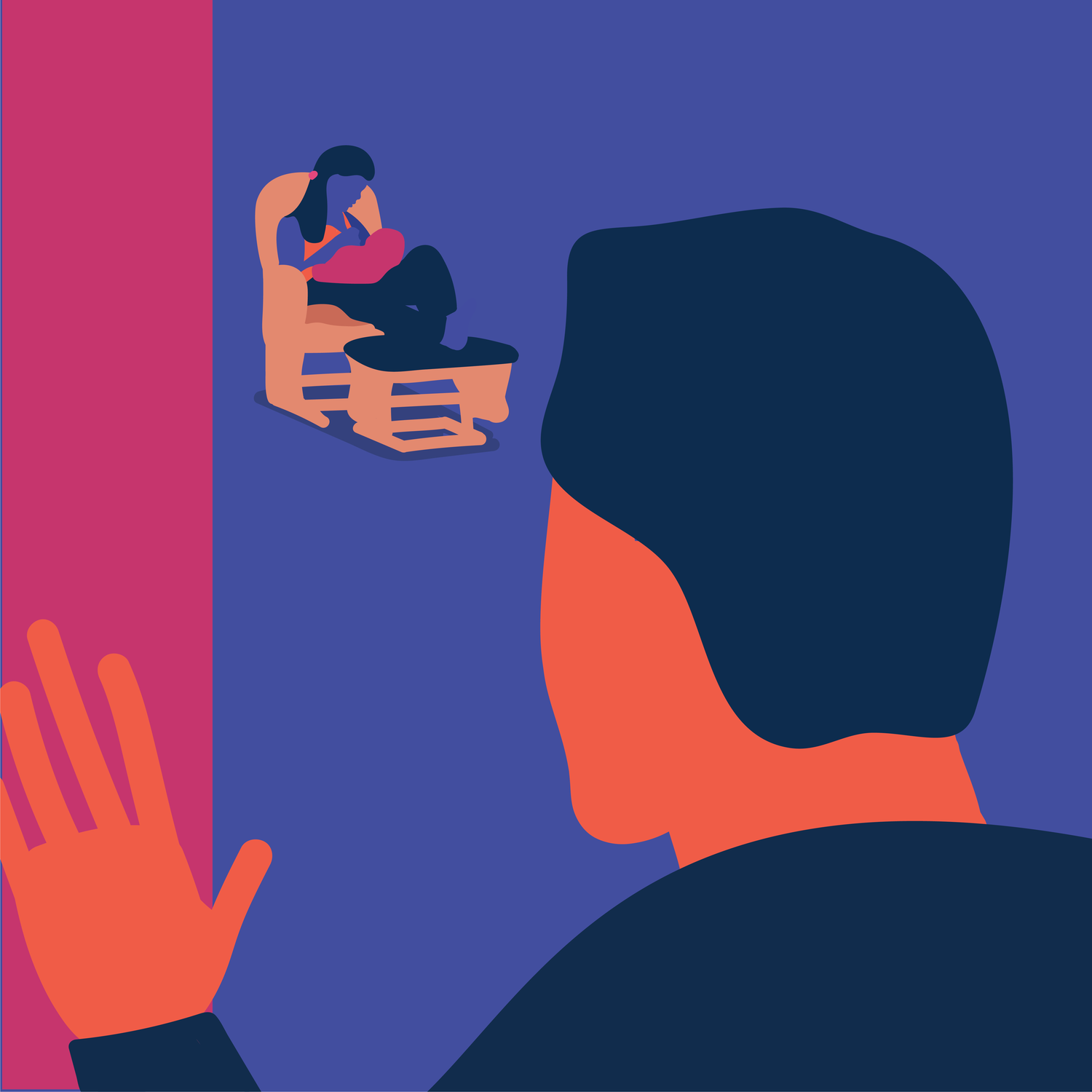If you are a mother-to-be, then you may be wondering if you could be experiencing this type of OCD. This is a type of obsessive-compulsive disorder that can occur during pregnancy or after giving birth. It is estimated that around 1 in 200 women experience perinatal OCD, so it is important to know the symptoms and how to get treatment. In this blog post, we will discuss all aspects of this type of OCD including symptoms, treatment, and recovery.
Contents
What Is Perinatal OCD?
 Perinatal OCD is a form of OCD that can occur during pregnancy or after the birth of a baby. It is characterized by intrusive, unwanted thoughts and fears related to the health and safety of the baby. Women with perinatal OCD may obsessively worry about things like contracting a deadly illness, harming their baby, or going into labor prematurely. They may also have difficulty bonding with their baby due to fear of losing them.
Perinatal OCD is a form of OCD that can occur during pregnancy or after the birth of a baby. It is characterized by intrusive, unwanted thoughts and fears related to the health and safety of the baby. Women with perinatal OCD may obsessively worry about things like contracting a deadly illness, harming their baby, or going into labor prematurely. They may also have difficulty bonding with their baby due to fear of losing them.
Sometimes this type of OCD can be so debilitating that it interferes with a woman’s ability to care for her baby. Women with perinatal OCD may avoid being around their baby, or they may excessively clean and disinfect their home in an attempt to prevent harm from coming to their child.
Signs of Perinatal OCD

There can be many signs of perinatal OCD, but some of the most common are:
Intrusive Thoughts About Harming Baby
One of the main symptoms of perinatal OCD is having intrusive thoughts about harming your baby. These thoughts can be about hurting your baby in a fall, dropping them, or even shaking them. These intrusive thoughts are also called “obsessions.” Sometimes there may also be thoughts of self-harm.
Excessive Worrying About Baby’s Health
Another common symptom of this type of OCD is excessive worrying about your baby’s health. This can include worrying about them contracting a disease, being born with a deformity, or dying. Sometimes there are also worries that something will happen to the mother, such as postpartum depression.
Compulsive Behaviors Related to Baby
There are also often compulsive behaviors related to the baby. This can include things like checking on the baby constantly, making sure they are breathing, or even counting their breaths. These behaviors are often done in an attempt to relieve the anxiety caused by the obsessions.
Constant Doubting
Another common symptom of perinatal OCD is constant doubting. This can be doubting whether or not you love your baby, doubting that you will be a good mother, or even doubting your sanity. Doubting can also lead to a lot of guilt and shame.
Feeling Isolated and Alone
Many women with perinatal OCD feel isolated and alone. This is because they are often afraid to tell anyone about their symptoms for fear of being judged or ridiculed. They may also feel like they are the only ones going through this.
Causes of Perinatal OCD

There are many causes of perinatal OCD, but the most common is a change in hormone levels during pregnancy. This can cause an imbalance in the brain that leads to obsessive thoughts and behaviors. Other causes include:
Genetic Factors
One of the main causes of perinatal OCD is genetic factors. If you have a family member with OCD, you are more likely to develop the disorder yourself.
Stressful Life Events
Another common cause of perinatal OCD is stressful life events. This can include things like the death of a loved one, job loss, or even just the stress of pregnancy itself.
Brain Structure
Another cause of perinatal OCD is a difference in brain structure. This can be due to a chemical imbalance or a difference in the way the brain processes information.
Abuse
Another cause of perinatal OCD is abuse. This can be physical, sexual, or emotional abuse. Oftentimes, women who have been abused in the past are more likely to develop OCD.
One of the last causes of perinatal OCD is trauma. This can be anything from witnessing a traumatic event to experiencing one yourself. Trauma can often lead to intrusive thoughts and compulsive behaviors.
Negative Impacts of Perinatal OCD
 There are many negative impacts of perinatal OCD that can severely interfere with a person’s quality of life. Some of the more common ones include:
There are many negative impacts of perinatal OCD that can severely interfere with a person’s quality of life. Some of the more common ones include:
Impacts on the mother-child relationship: One of the most difficult aspects of perinatal OCD is the impact it can have on the relationship between a mother and her child. The constant anxiety and fear that comes with the condition can make it difficult for a mother to bond with her child. In some cases, perinatal OCD can even lead to postpartum depression.
Impacts on work and other activities: This type of OCD can also interfere with a person’s ability to work or participate in other activities. The condition can cause missed days at work, as well as difficulty concentrating on tasks. It can also lead to social isolation due to fear of exposure to germs or contamination.
Impacts on the family: This type of can also hurt the family. The constant anxiety and stress that comes with the condition can be difficult for loved ones to deal with. In some cases, perinatal OCD can even lead to divorce.
Impacts of financial burden: The costs associated with perinatal OCD can also be a financial burden. The condition can require expensive treatments, such as therapy and medication. In some cases, this type of OCD can even lead to job loss.
Treatment of Perinatal OCD

There are many different treatments for perinatal OCD, but the most common is cognitive behavioral therapy (CBT). Some of these medications are:
Medications
One of the most common treatments for perinatal OCD is medication. The most common type of medication used is antidepressants. These can help to balance the chemicals in the brain and alleviate symptoms.
Cognitive Behavioral Therapy
Another common treatment for perinatal OCD is cognitive behavioral therapy (CBT). This type of therapy helps to change the way you think about your obsessions and compulsions. It can also help you to develop coping mechanisms to deal with your symptoms.
Exposure and Response Prevention
One of the last types of treatment for perinatal OCD is exposure and response prevention (ERP). This type of therapy involves exposing yourself to your triggers and then not doing your compulsions. This helps you to realize that your fears are not real and that you can cope with them.
Another type of treatment for perinatal OCD is family therapy. This helps to educate your family about your disorder and how to support you. It can also help to reduce the stress in your home life. Sometimes, family therapy is done in conjunction with individual therapy.
Support Groups
Support groups are another great resource for women with this type of OCD. These groups may provide a safe and supportive environment where you can share your experiences and learn from others.
Self-Care
One of the most important things you can do for yourself is to practice self-care. This means taking care of yourself physically, mentally, and emotionally. This includes things like getting enough sleep, eating a healthy diet, and exercising regularly. It also means taking time for yourself to relax and do things that you enjoy.
Helping Someone With Perinatal OCD

Helping someone with perinatal OCD can be difficult. The person may not want to talk about their symptoms or may not want to seek treatment. It is important to be patient and understand that the person is dealing with a lot of anxiety and fear.
These are some of the tips to help someone with Perinatal OCD:
Be Supportive
One of the best things you can do is to be supportive. This means listening to the person and not judging them. It is also important to provide reassurance and encourage the person to seek treatment.
Educate Yourself
It is also helpful to educate yourself about OCD and perinatal OCD. This way, you will be able to understand what the person is going through and be able to offer more support.
Encourage Treatment
Treatment is important for recovery from this type of OCD. You can encourage the person to seek treatment by providing information about treatment options and helping them find a therapist.
Try to Be Understanding
The person with this type of OCD is dealing with a lot of anxiety and fear. Try to be understanding and patient. This can be difficult, but it is important to remember that the person is not OCD.
These are some tips to help you support someone with this type of OCD. Remember, it is important to be supportive, patient, and understanding.
Conclusion
Prenatal and postpartum OCD can be extremely debilitating, but there is hope. If you or someone you know is struggling with this type of OCD, please reach out for help. With treatment, women can and do recover from perinatal OCD and go on to have healthy pregnancies and births.
If you think you might be suffering from prenatal or postpartum OCD, please contact your healthcare provider. You can also find more information and support from us.
Hope this article was of help to you! If you are suffering from OCD, you may seek help from Therapy Mantra. We have a team of highly trained and experienced therapists who can provide you with the tools and skills necessary for overcoming OCD. Contact us today to schedule an online therapy or download our free OCD treatment app on Android or iOS for more information.


